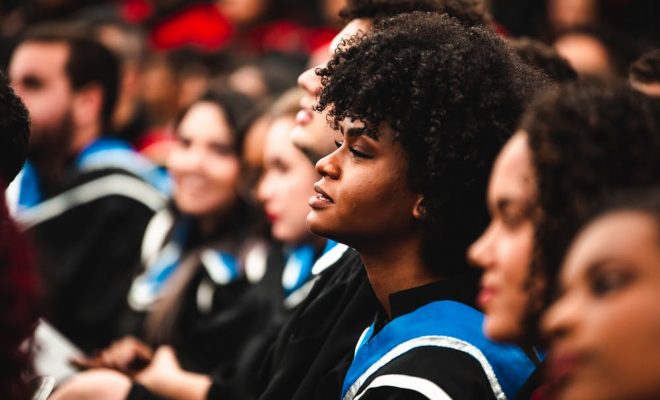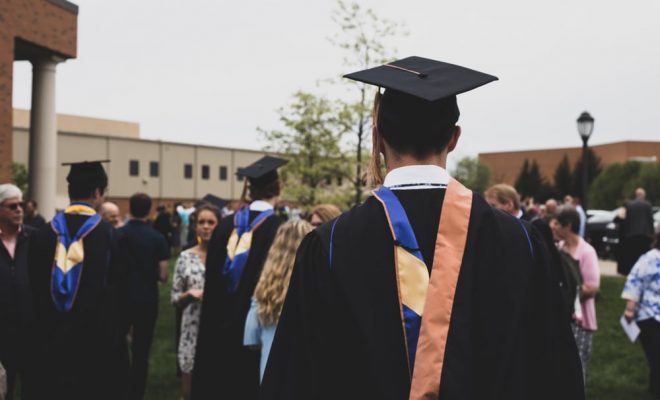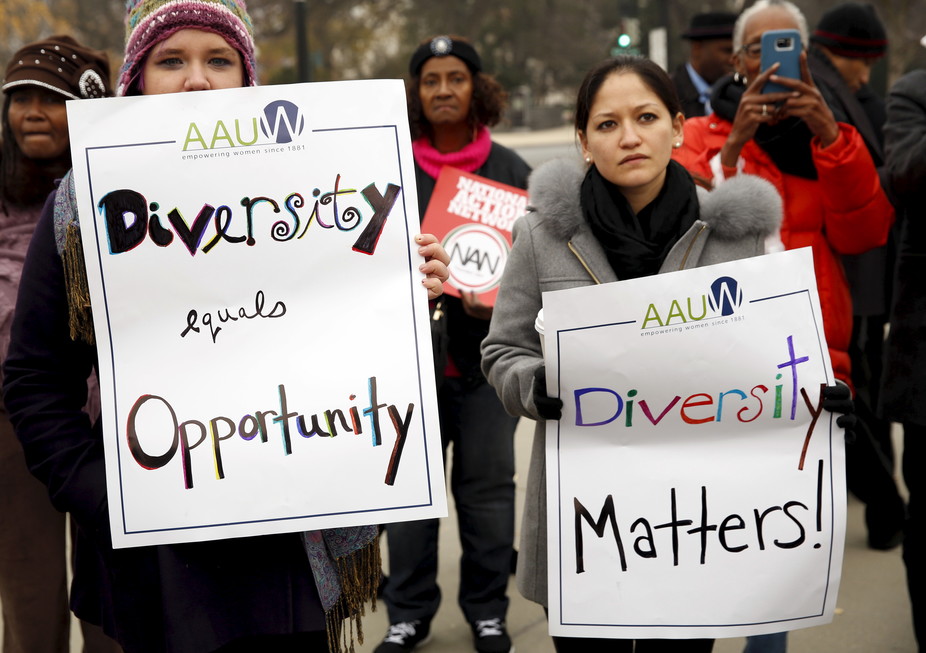2023 Best Online Bachelor’s in Applied Psychology Programs

Click here to find out more about the ranking methodology that we used to compile this list.
Congratulations! If you represent a college or university that is included in this list, please collect your seal below.
Deciding which college to attend can be a daunting task. For many, it will be the most important decision that they make in their lives. To make an informed decision, you have to consider a lot of variables, such as cost of attendance, financial aid, student/teacher ratio, academics, student life, and more. These factors will either positively or negatively impact the quality of education that you receive.
Do you want to acquire an online bachelor’s in applied psychology, but don’t know what institution you should attend? Well, if you are as ambitious as I was in my late teens, then you want to attend a top school, instead of an average or mediocre one. Fortunately, we have already done the legwork for you. To help you find the right school for your interests and goals, we’ve compiled a list of 2022’s best online bachelor’s in applied psychology programs.
What institution did we forget? Leave your thoughts in the comment section below.
- Regis University, Denver, CO
The institution has 70 challenging elearning degrees, including an online bachelor of science in applied psychology. Exploring issues from stress and well-being to abnormal behavior and forgiveness, the 120-credit coursework includes 45 required core, 15 foundational, and 27 required upper-division credits. Learners who add a minor to their applied psychology degree take 12 minor and 21 general elective credits; those who do not, finish 33 elective credits. The degree program has classes such as professional ethics in psychology, comprehension trauma and PTSD, and the psychology of intimate relationships. All applied psychology majors finish a three-credit senior capstone class.
The institution evaluates candidates based on several factors, including their resume, transcripts, and individual statement essay. All distance learners in the applied psychology bachelor’s degree program pay the same tuition rate, and online learners qualify for the same financial aid as their on-campus counterparts, including scholarships, loans, and grants. The institution’s Center for Career and Professional Development helps learners meet their professional objectives via employment resources and supports, advising services, and training.
- Oregon Institute of Technology, Klamath Falls, OR
Situated in Klamath Falls, Oregon Tech is a nationally recognized institution that holds regional accreditation from the Northwest Commission on Colleges and Universities. Developed according to American Psychological Association standards, the school’s online applied psychology degree investigates research methods, behavior modification strategies, and social, developmental, and counseling psychologies. Many degree program graduates pursue careers as behavior specialists, therapists, teachers, and researchers.
Oregon Tech’s BS in applied psychology degree program requires 180 credit hours, including 67 applied psychology credits. While learners must finish at least 45 credits at Oregon Tech, they may fulfill the remaining degree requirements via transfer credits. The degree program requires a grade of “C” or better in all applied psychology classes. Learners who graduated from high school after 1997 must also finish at least two terms of a foreign language, with a grade of “C-“ or better unless they took two years of high school foreign language.
Major classes address concepts in human growth and development, psychological research methods, and cognitive psychology. The degree program culminates in an applied psychology capstone class during the learners’ final term. Candidates also finish a 12-credit applied externship. Oregon Tech’s applied psychology externship degree program pairs learners with relevant organizations in their local communities, allowing distance learners to get real-world professional experience.
Oregon Tech’s reasonably priced, flat-rate tuition applies to both in-state and out-of-state online learners. The school has exclusive scholarship opportunities for distance learners. While prospective learners do not need to meet minimum GPA requirements, candidates to the applied psychology degree program must submit ACT or SAT reasoning scores.
- Bryan College, Dayton, TN
Established in 1930, Bryan strives to foster spiritual, academic, and individual growth by providing liberal arts programs grounded in biblical principles. Bryan’s online bachelor of science in applied psychology uses asynchronous scheduling, and accelerated six-week classes, allowing learners to work full time as they earn a degree. Distance learners may begin the degree program during any month of the year. Candidates can get academic credit for prior life and professional experience along with previous college classwork.
The 124-credit coursework includes 36 psychology credits and 30 general education credits. Candidates fulfill any remaining credits through elective classwork. Learners can design a non-credit portfolio of their work and enroll in an optional psychology practicum class.
Learners who do not finish the practicum take an additional elective class. Applied psychology classes consist of research design and methodology, counseling methods, and methods, and models of integration. All learners must obtain a grade of “C-“ or better in all psychology classes. Distance learners who enter the degree program with fewer than 48 transfer credits can take a series of general education and elective classes.
- Loyola University of Chicago, Chicago, IL
The institution’s career-oriented online bachelor of arts in applied psychology presents concepts such as social psychology, industrial psychology, and individuality studies in a convenient format perfect for working professionals. Along with classes in organizational development and alter, judgment and decision-making, and degree program evaluation, the 120-credit coursework introduces foundational business principles and management theories. Each session lasts eight weeks.
While learners must finish 36 of the 120 required credits within the applied psychology major, Loyola enables distance learners to transfer a maximum of 18 psychology credits toward the required 36-credit major requirement. Distance learners obtain full access to learner support services, including academic advising, technical assistance, and library and research help. All of Loyola’s online professors obtain special training in distance education instruction and coursework design.
Candidates to the applied psychology degree program must submit official transcripts from all previously attended colleges and hold a minimum 2.0 GPA. Prospective learners can meet one-on-one with an admissions counselor for additional guidance. Candidates normally obtain the institution’s admission decision within two weeks of applying. Loyola maintains rolling admission dates, and learners may begin the degree program during any of the academic year’s five terms.
- Hodges University, Naples, FL
A privately run institution, Hodges holds regional accreditation from the Southern Association of Colleges and Schools. To meet learner demands for adaptable education, Hodges designed many of its on-campus programs, making them available online. Today, the institution has more than 40 undergraduate and graduate elearning programs, including an online applied psychology degree.
The business-focused, liberal arts-grounded degree readies candidates for careers in social services, education, and mental health. The coursework investigates theoretical and real-life aspects of the applied psychology field, offering insight into human motivation and behavior. Classes in the 120-credit coursework consist of assessment and case management, the psychology of conflict management, and cognitive development. Learners must finish 36 applied psychology, 36 general education, and 48 elective credits to graduate.
While Hodges’ applied psychology BS degree program takes a primarily asynchronous approach to online learning, some classes may require learners to log on at specific times and partake in activities. Hodges does not require candidates to hold a minimum GPA or submit standardized test scores. Admissions advisers help prospective learners plan a course of study based on their prior education, professional experience, and career objectives.
- Judson University, Elgin, IL
Judson is a Baptist liberal arts institution that strives to uphold religious values, developing community leaders and ambassadors for Christ via education. While prospective learners need not identify as Christians, all learners must sign a biblically informed commitment to a lifestyle statement. The institution has several professional programs that lead to associate and bachelor’s degrees, including a bachelor of arts in applied psychology.
Customized to meet the needs of professionals, the degree program teaches learners to critically examine human behavior and find real-life solutions to real-world problems in the field. The coursework includes an internship that gives learners real-life applied psychology experience in their local community. Learners get skills in assessment, intervention, and counseling as they learn to examine individual and group behavior, craft a professional ethics code rooted in Christian principles, and carry out and present research projects.
Applied psychology candidates must finish 46 credits of core classes. Learners take one class at a time in which the cohort-style degree program groups together small clusters of learners who progress through the coursework together from the first class to the last. The cohort approach fosters close relationships among learners, designs networking chances, and enables for more one-on-one attention from professors.
- Franklin University, Columbus, OH
Franklin University’s 120-credit applied psychology degree takes four full-time years to finish. Building foundational applied psychology knowledge, the degree program investigates human strengths and weaknesses through classes on the psychology of individual development, assessment, and intervention in organizations, and applied research methods. Learners also get experience with instrumentation, coaching, and psychological evaluation.
Unlike many undergraduate programs, Franklin offers bachelor’s candidates the chance to finish a real-life, field-based practicum in their final semester. The coursework imparts varied skills, making it perfect for learners interested in applied management, social and behavioral science, and human resources and supports management careers.
Franklin has one-on-one transfer support to ensure learners get all the credit they deserve. Applied psychology majors can transfer a maximum of 94 credits toward the degree, saving time and money. Along with credit for prior academic classwork, learners may obtain college credit for military training, professional training, previous learning assessments, and portfolios. Prospective learners can also utilize Franklin’s free 10-minute online transfer credit tool to help determine how many of their credits qualify for transfer. All distance learners at Franklin pay the same tuition, regardless of their residency status.
- Gwynedd Mercy University, Gwynedd Valley, PA
Established by the Sisters of Mercy in 1948, GMercyU is a Catholic institution. One of 17 Sisters of Mercy institutions in the US, GmercyU, has liberal arts degrees that accentuate experiential learning and service. The institution’s online applied psychology degree focuses on professional development and emphasizes values like compassion, diversity, and human dignity. As a bachelor’s completion degree program, the degree is intended for working professionals who have previously earned at least 30 college credits.
Covering concepts such as counseling skills, ethical issues in behavioral and social sciences, and group processes, the 120-credit coursework imparts both theoretical and real-life skills. Learners take classes such as abnormal psychology, research methods, and organizational theory and behavior. The degree program culminates in a capstone class during which learners finish an in-depth research project.
The 120-credit BS in applied psychology uses an adaptable, asynchronous instructional format. Learners can finish classwork and review class materials at their convenience. Online learners obtain individualized attention from professors and develop connections with other learners via virtual class discussions. GmercyU charges the same reasonably priced tuition rate for all distance learners, regardless of where they live. Military members and veterans obtain a generous tuition discount.
- University of Maine at Machias, Machias, ME
UMM is a small state-run institution that began as a teacher training school in 1909. Today, the institution has 12 liberal arts bachelor’s degrees, including a multidisciplinary, web-based BA in psychology with a concentration in applied psychology. The 120-credit degree program investigates change and the human community.
The applied psychology concentration prepares learners to pursue graduate-level study in a related field or entry-level roles such as caseworkers or direct care counselors. Centered in traditional psychology, the degree program emphasizes service-learning and community engagement. Learners collaborate with other classmates and community members, applying their classroom learning to real-world situations during internships and fieldwork.
Along with general education classwork, distance learners finish concentration classes such as physiological psychology, learning and memory, and developmental psychology. Candidates also investigate issues including substance abuse, prejudice and discrimination, and the effects of policies on communities. Some classes prepare learners to seek professional licensure in social service areas such as mental health and rehabilitation technician, birth to five years, special education, and drug and substance utilize counseling.
Learners who qualify for the New England Regional Program or who live in Canada obtain a tuition discount. While candidates must submit ACT or SAT scores, UMM does not set minimum GPA requirements for prospective learners. The institution sponsors an array of need- and merit-based scholarship chances.
- Multnomah University, Portland, OR
Online learners can finish Multnomah’s bachelor of arts in applied psychology in as little as 25 months, depending on how many transfer credits they apply to the degree. A private, nondenominational Christian institution, Multnomah encourages its learners to serve the broader community. The institution has 10 undergraduate-level and graduate-level distance education programs, including an online applied psychology degree with no on-campus requirements.
Featuring a discussion-focused learning model, the degree program takes a real-life, rather than a theoretical approach to psychology. Learners learn to help people solve problems from a biblical viewpoint and Christian worldview, applying psychological theories to everyday issues. The 124-credit degree program includes 30 applied psychology, 41 elective, and 35 general education credits. Undergraduates must also finish 18 Bible and theology credits through classes such as Bible study methods, New Testament Gospels, and Old Testament Pentateuch.
Major classes such as the psychology of religion and spirituality, foundations of counseling, and introduction to psychopathology examine the cognitive, behavioral, and biological factors that influence human development. The degree program also investigates foundational psychological theories and research methods.
Learners take two classes at a time and must earn a cumulative 2.0 GPA or higher to graduate. Multnomah learners must fulfill a series of degree program prerequisites, including an introduction to psychology and English composition, before attending upper-division classwork.







